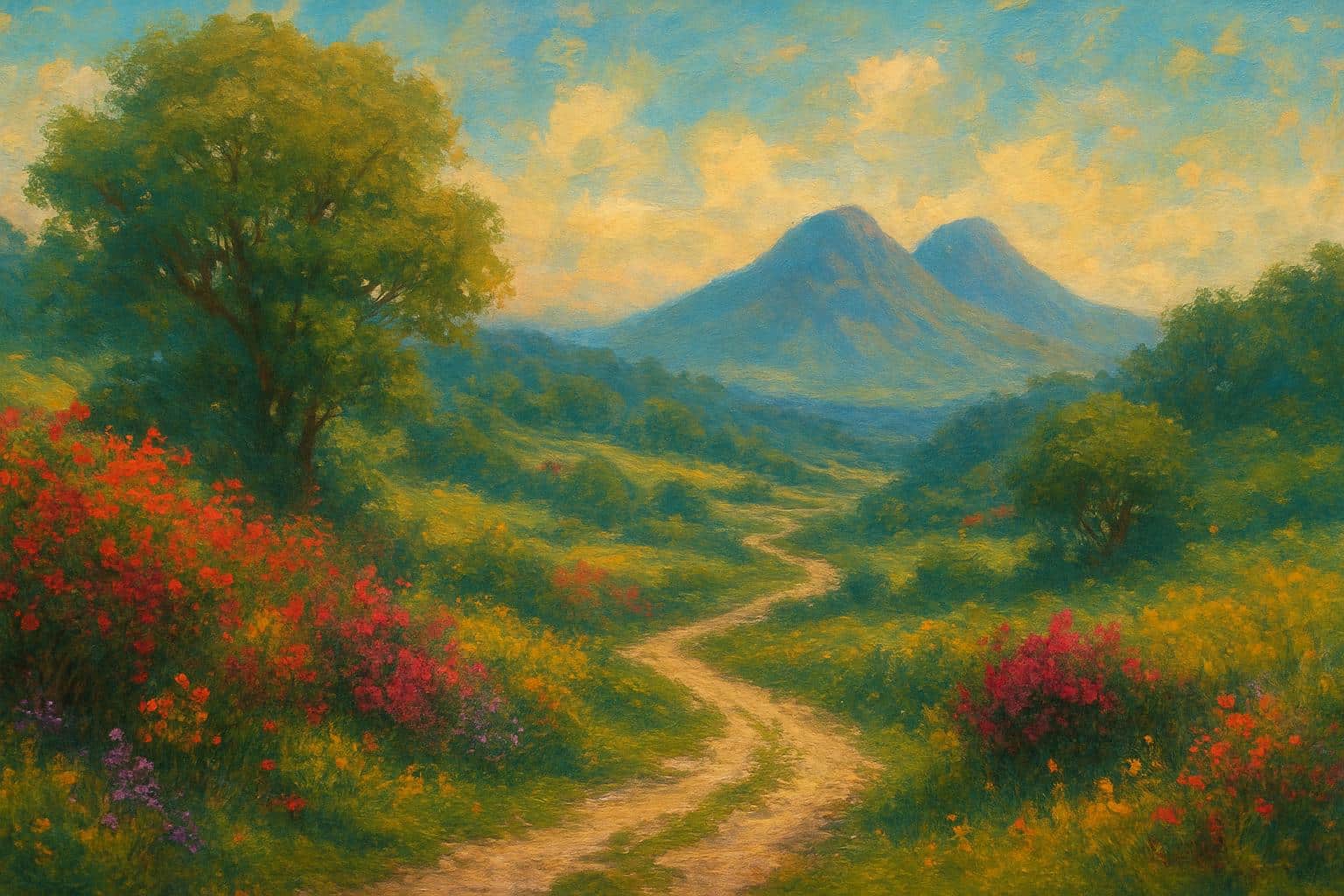Colin Farrell and Margot Robbie star in a candy‑colored fantasy-romance too gooey to resist on paper — one featuring a fate-tinged meet-cute, a road trip through memory and two of the most charismatic movie stars breathing. But A Big Bold Beautiful Journey often plays as if it’s admiring love under glass, museum-precise and gleaming but somehow hard to touch.
Its director, Kogonada, who cut his teeth on the meditative poise of Columbus and After Yang, is a maker of worlds full of dazzling surfaces and exacting frames. The effect is ravishing to look at but cold-blooded in impact, a movie that holds feelings back even as it tries to grasp grand, melancholy truths.

A high‑concept romance with Kogonada’s cool touch
On the day of a wedding, David (Farrell) finds his car has been booted, and follows a cryptic flyer to a remote rental agency where reality quickly gives way to fable. In a huge, empty warehouse, two attendants (played with opposite effervescence by Phoebe Waller‑Bridge and Kevin Kline) guide him toward a gleaming car and the must-have GPS voiced by Jodie Turner‑Smith. It’s the sort of scene that, in theatrical terms, feels both minimal and maximal: few props and lots to mean.
Seth Reiss’s script (The Menu, The Regime) then cracks a real door to the film’s premise: a narratively threaded shaggy‑dog‑story puzzle that gives its star‑crossed kissers access to visit one another in each other’s pasts. It has a striking architecture of ideas — like a gentler riff on “Being John Malkovich” — promising the kind of romance that’s part wonder, part reckoning and part forgiveness.
Stars who shine, chemistry that burns out
There’s even a sense of melancholy here, calibrated with the lightest of touches by Farrell as though he had summoned the soulful precision that made his In Bruges work (ironically for McDonagh) and The Banshees of Inisherin and The Lobster such indelible pieces. Robbie brings mischief and magnetism: Her Sarah is styled in brash reds that play counterpoint to David’s cool blues — a visual shorthand for the uptown/downtown, order/impulse dynamic that shapes their courtship.
For all that star power, the spark hardly ever ignites. The flirtation is crisp and wry, yet the script tends to regard its leads more as concepts than individuals. Their patter orbits diagnoses — bad habits, parental injuries, self‑sabotage — instead of creating an unruly, specific intimacy. Where Eternal Sunshine of the Spotless Mind plunges you into messy, contradictory emotion, this one is more likely to file feelings alphabetically.
A world of color and a dearth of emotion
Kogonada’s compositions are exquisite: their saturated palettes, clean lines and production design that transform lighthouses, museum corridors and city blocks into storybook panels. The early rental‑agency sequence buzzes with oddball energy, hinting at a movie that could flirt with the fringe of surreal farce before tumbling over into romance.

But as the portals illuminate familiar heartbreaks — childhood aches, romantic misfires — the film relies on elegantly staged clichés. The pace remains stately, even somnambulant; even at a sub-two-hour running time, the story seems to stretch beneath the weight of its own discretion. Kogonada’s approach is reflective by design, but the poetry rarely breaks open into catharsis here.
The fantasy device exceeds reality’s emotional pull
The memory doors make for a good metaphor for vulnerability: what if you could edit your history together, with someone you might want to love? But the choices have a way of reinforcing what the characters already think about themselves. Instead of surprise — those revelations that crumple distance between people — the film provides tasteful affirmations. The GPS sounds like a snarky radio drama and leads David ominously into detours and reckonings. Too bad the ironic metafiction behind it is only sporadically indulged in by the story itself.
What differentiates genre high points — from About Time to The Shape of Water — is their ability to translate invention into emotional access. And the latter’s Best Picture win reminds us that fantasy can sharpen feeling rather than anesthetize it, a lesson this movie’s eminently wieldable machinery could have used.
Where this leaves the modern fantasy-romance genre
There is an audience for this kind of crafted remove; After Yang received praise for a similar restraint, and plenty of viewers respond to Kogonada’s meditative mood. But romance is a full-contact activity. Even the fanciest metaphors require the mess — bad timing, humiliating confessions, hunger, doubt — that tips a neat grammar of argument sideways and leaves enough room for two impossible people.
A Big Bold Beautiful Journey hums with purpose and panache, and its stars never phone it in. Yet the film is closer to being a postcard from love than a love letter, still pretty, though read before. Visually beautiful, pristinely crafted, and telegraphed from emotional beat to emotional beat, it will captivate people on Kogonada’s frequency and leave others yearning for heat worthy of the color.

